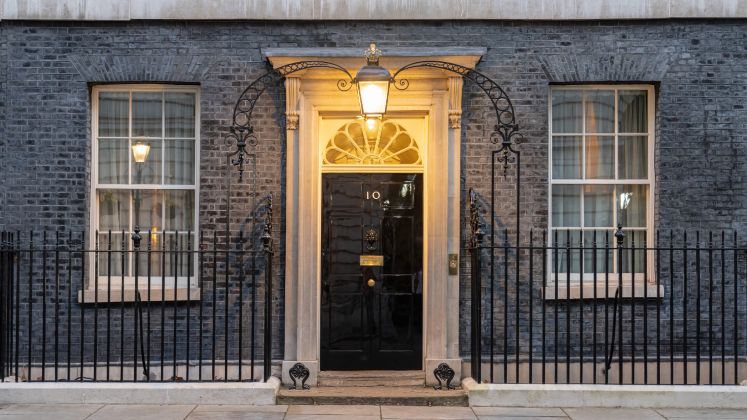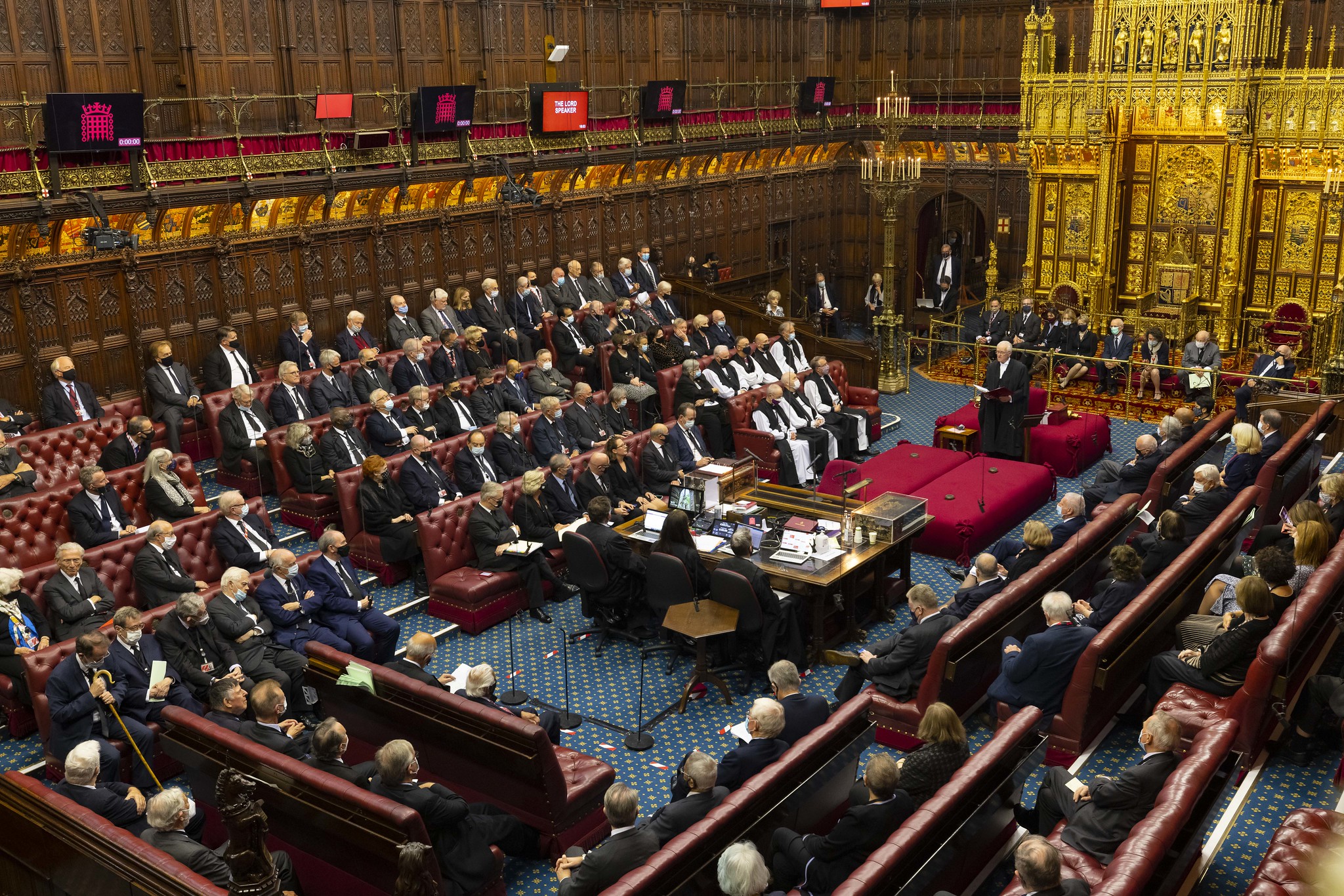 Emmeline Ledgerwood draws on evidence from archived oral history interviews to consider the extent to which an MP’s background in science, technology, engineering, maths, and medicine has contributed to his or her activity as a parliamentarian.
Emmeline Ledgerwood draws on evidence from archived oral history interviews to consider the extent to which an MP’s background in science, technology, engineering, maths, and medicine has contributed to his or her activity as a parliamentarian.
The varying national responses to the coronavirus pandemic have focused attention on the provision of scientific advice to governments. In the UK in particular, the interplay between evaluations from the Scientific Advisory Group for Emergencies (SAGE) and decisions by Boris Johnson’s cabinet has come under close scrutiny. Whatever judgments are made about the evidence provided and the subsequent policy decisions, there is no doubt that the UK Government possess the ability to draw on a wide range of scientific expertise channelled through a network of departmental chief scientific advisers.
How then are members of Parliament equipped to effectively debate and scrutinise the ensuing legislation that deals with complex issues such as COVID-19? Various institutional mechanisms have been set up since the 1960s to improve MPs’ and Peers’ access to impartial information concerning science, technology, engineering, maths and medicine (STEMM). Today, select committee inquiries in both Houses, in tandem with research services offered by the Commons and Lords libraries and the Parliamentary Office of Science and Technology, generate a range of reports and briefings that support parliamentarians’ consideration of STEMM-related policies.
However, another strategy which is often proposed as a way of strengthening Parliament’s capacity to deal with these issues is to have higher numbers of MPs and Peers with a STEMM background. In the case of the House of Lords, this could be viewed as unnecessary, as its appointed membership consistently includes a range of distinguished experts such as neuroscientist Baroness Susan Greenfield or surgeon and TV presenter Lord Robert Winston.
When it comes to the Commons, the idea is impractical, since the level of scientific expertise within any cohort of MPs is determined by variables such as individuals’ decisions to run as candidates, the attitudes of party selection committees, and the electorate’s voting behaviour. If MPs with specialist expertise are elected, they are still unlikely to have the breadth of knowledge to fully understand issues as complicated as COVID-19. At the same time, their objectivity comes into question once opinions are aired in the partisan atmosphere of the House.
We do not know very much about whether an MP’s STEMM background affects their behaviour as a parliamentarian. There is no official data on the occupational backgrounds of MPs, and it is difficult to assess which MPs have arrived at Westminster with a STEMM background when general analyses group them into categories such as civil servant, teacher or business manager. One study which analysed parliamentary voting during the passage of the Human Fertilisation and Embryology Bill concluded that there was no strong evidence to suggest that MPs with scientific training were more likely to vote on scientific issues.
My recent research in this area reaches similar conclusions, showing that within a limited group of former MPs, a parliamentary interest in STEMM issues was not necessarily determined by their educational background or former working lives. I used a collection of archived oral history interviews with former MPs to investigate their experiences of engaging with STEMM issues in Parliament. A keyword search of the interview summaries, accessible through the British Library catalogue, identified 35 interviewees who referred to relevant STEMM or parliamentary activities. Their tenure as MPs fell during the period 1959-2005, and within this group of 35 only three were women, reflecting the intersection of spheres that have historically been dominated by men.
When discussing their pre-parliamentary experiences, 26 interviewees referred to some form of technical, medical, or scientific education or occupation, ranging from studying science at university, completing engineering apprenticeships, receiving technical instruction in the armed forces to working in academia or industry. A search through Hansard shows that these MPs would often draw on such credentials to give authority to their contributions in the House.
However having such a background did not necessarily translate into an ambition to become a STEMM specialist in Parliament. Ben Ford (MP for Bradford North, 1964-83) had a thorough knowledge of aviation electronics and experience of lecturing at INSEAD and Cambridge University, yet he felt uncomfortable with the idea of becoming a party spokesperson for science.
It was interviewees that had no formal STEMM training who were the most active or vocal in pushing for debate and inquiry into these matters. The most prominent of these was Tam Dalyell (MP for West Lothian, 1962–83; Linlithgow, 1983–2005). He was a prolific commentator on STEMM matters both inside and outside the House, writing a column for New Scientist for more than 40 years, yet he had switched from maths to history at university. His interview reveals a long-standing interest in science that included attending science lectures by famous physicists such as Otto Frisch and James Chadwick during his university days at Cambridge.
As a Peer Patrick Jenkin (MP for Wanstead and Woodford, 1964-87) chaired the influential House of Lords Science and Technology Committee during its 2000 inquiry into science and society, yet he ‘did no science at school at all’. His interest can easily be explained by his family background as his great-grandfather and father were both engineering professors, and his father an industrial chemist. Jenkin however studied classics because ‘that’s what people were pushed into in the 1930s’.
The interviews also offer insight into the supply of scientists or engineers as parliamentary candidates, showing that some working lives did not necessarily support those with political ambitions. George Turner (MP for North West Norfolk, 1997–2001) found his employer was unaccustomed to staff who wanted time for campaigning:
I went back to the university and negotiated because I was at that time head of the electronic engineering sector and I negotiated with them that I would have a sort of basic period of absence to fight the election.
Edmund Marshall (MP for Goole, 1971–83) was a university maths lecturer and realised his choice of career would not help his political aspirations: ‘I thought then … I have to broaden my experience occupationally and move out of academic life.’
The interviews with these former MPs show that a STEMM background did not determine which of them became advocates for STEMM in Parliament, nor did a STEMM occupation easily accommodate ambitions to run as a parliamentary candidate. The results of this study suggest that expanding Westminster’s capacity to understand STEMM issues depends on strengthening its mechanisms for legislative science advice rather than calling for more scientists in Parliament.
________
Note: the above draws on the author’s published work in Parliamentary History. All articles posted on this blog give the views of the author(s), and not the position of LSE British Politics and Policy, nor of the London School of Economics and Political Science. Featured image credit: by Alex Kondratiev on Unsplash.







